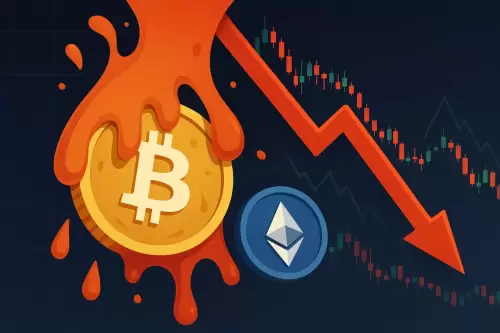 |
|
 |
|
 |
|
 |
|
 |
|
 |
|
 |
|
 |
|
 |
|
 |
|
 |
|
 |
|
 |
|
 |
|
 |
|
Cryptocurrency News Articles
Pi Network Is Experiencing Operational Imbalance as Nearly Half of Its Global Nodes Are Located in Vietnam
May 22, 2025 at 08:53 pm
Pi Network is experiencing operational imbalance as nearly half of its global nodes are located in Vietnam, raising decentralization concerns.
Nearly half of Pi Network's global nodes are located in Vietnam, raising decentralization concerns as the project aims for a distributed infrastructure. Recent figures from Chainalysis show 154 out of 319 total nodes, or 48.2 per cent, are hosted in Vietnam.
This regional imbalance, combined with tightening Vietnamese regulations on cryptocurrencies, puts Pi Network's stability and long-term functionality at risk.
Pi Network Struggles with Node Imbalance
Pi Network faces a structural issue as Vietnam continues to dominate its node distribution, potentially undermining its goal of global reach and participation.
At the time of reporting, 33 of the 76 connected nodes also operated from Vietnam, reinforcing this trend. Other countries have far fewer nodes, reducing their influence on network activities and decisions.
This imbalance weakens Pi Network's claim to global accessibility despite its stated goal of connecting a diverse user base.
Moreover, Pi Network's reliance on a single country exposes the project to regional legal disruptions that could harm network reliability.
Vietnamese laws currently restrict using cryptocurrencies, including Pi Coin, for payments or transactions. Consequently, ongoing changes in legal frameworks could impact local operations and impair node connectivity.
Regulatory Pressure Adds to Structural Risks
Vietnamese regulators have increased scrutiny on Pi Network due to rising concerns about its operations and token usage.
Local laws classify Pi Coin outside the legal payment framework, making its use subject to fines and legal penalties. Authorities have also warned about potential criminal implications under financial regulations.
The Ministry of Finance is preparing stricter rules that may restrict digital asset activities to licensed entities. If enacted, this policy could impact Pi Network miners and operators in the region.
Any disruption to Vietnam-based nodes could reduce the platform's operational resilience and network consistency.
In 2023, Vietnamese agencies investigated Pi Network to assess its compliance and business model transparency. The findings raised doubts about the project's structure and sustainability under current laws.
These developments further stress Pi Network's reliance on nodes within a legally sensitive jurisdiction.
Pi Network Faces Token Control Concerns
Centralization issues extend beyond node distribution, as token supply remains mostly controlled by the core team. According to Piscan, Pi Foundation wallets hold over 60.7 billion of the 100 billion Pi supply.
This creates an uneven distribution, limiting community ownership and economic fairness.
With only two validator nodes operated by the core team, governance remains highly centralized and closed to external participation.
This limited validator structure also raises concerns about transparency and decision-making power within the network. A project promoting decentralization must allow broader access to validation rights.
Claims of insider selling have surfaced within the community, which could further erode confidence in Pi Network's leadership. While unconfirmed, such concerns underline the need for transparent token management.
Disclaimer:info@kdj.com
The information provided is not trading advice. kdj.com does not assume any responsibility for any investments made based on the information provided in this article. Cryptocurrencies are highly volatile and it is highly recommended that you invest with caution after thorough research!
If you believe that the content used on this website infringes your copyright, please contact us immediately (info@kdj.com) and we will delete it promptly.






























































